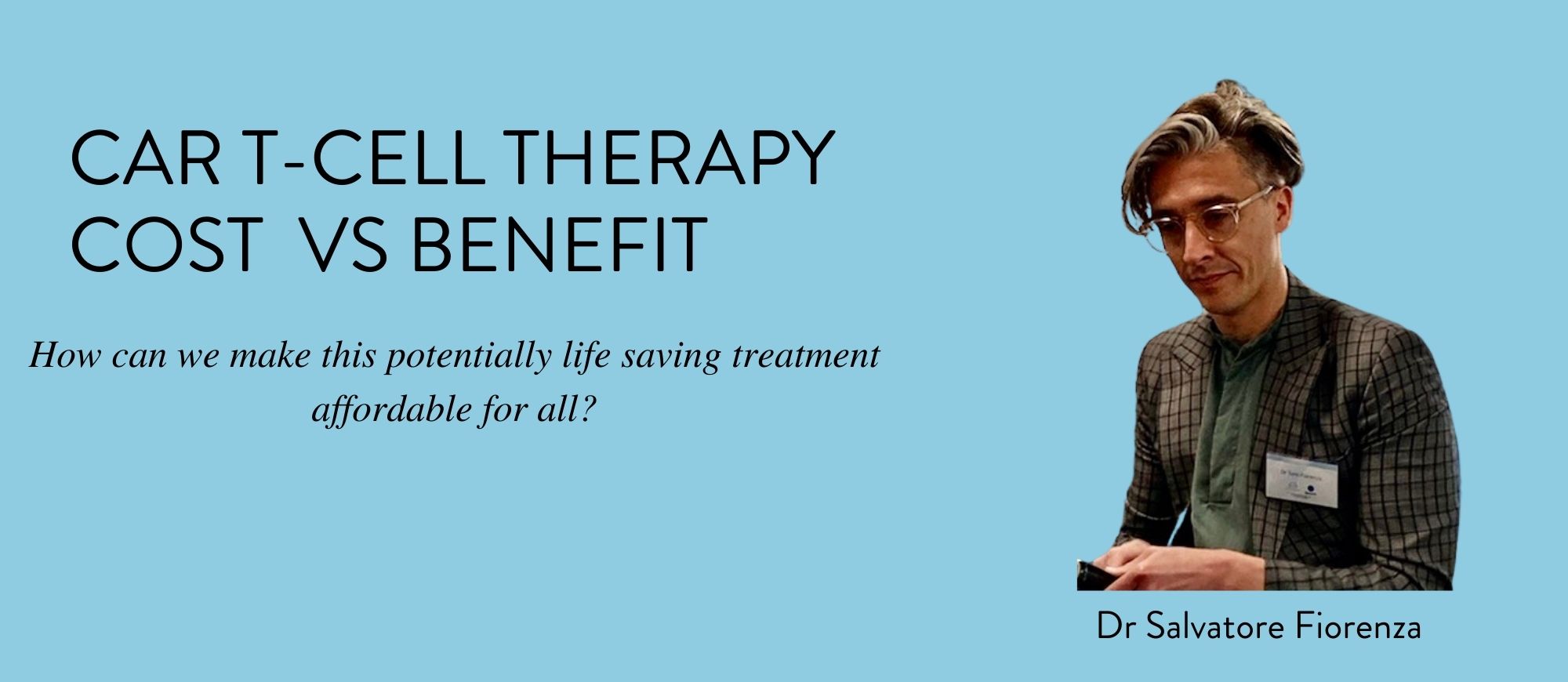A new blood cancer treatment shows long term disease control but, the cost of treatment is currently too great for health budgets

Research into the treatment, known as chimeric antigen receptor T-cell therapy (CAR T-cell), shows it is more effective than current cancer treatments, but effectiveness does not imply value as far as health budgets are concerned.
Australian and US blood cancer specialists reviewed the current measures of cost effectiveness and identified multiple strategies that could be put in place to reduce the overall cost of treatment, update value assessments or improve payment mechanisms.
These strategies would enable more adult patients to access lifesaving treatments which are currently prohibited due to health budget constraints.
In the May 2020 Bone Marrow Transplantation review article1, Dr Salvatore Fiorenza from the Fred Hutchinson Cancer Research Center USA, noted that there are potential solutions to improve value and affordability of CAR T-cell treatment.
The majority of paediatric patients achieve long term remission with CAR T-cell treatment which returns a net social value gain of $950,000 per child treated.
However, clinical research needs to focus on identifying adult patients that are most likely to respond to CAR T-cell treatment. Prioritizing treatment to these patients will invariably provide a return on investment similar to what we have seen in paediatric patients.
More CAR T-cell therapies are expected to come to market in the near future with a projected worth of the cellular therapy market of $8 billion dollars by 2025.
The group felt it was time to rethink how we determine the value of new cancer treatments to provide all patients with the best access to care without imploding health budgets.
- Fiorenza, S., Ritchie, D.S., Ramsey, S.D. et al.Value and affordability of CAR T-cell therapy in the United States. Bone Marrow Transplant55, 1706–1715 (2020). https://doi-org.virtual.anu.edu.au/10.1038/s41409-020-0956-8
